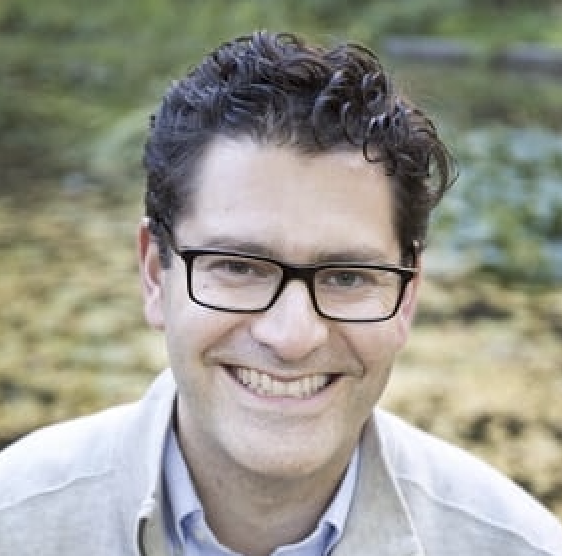

New research reveals that nature isn’t just good for the planet – it’s essential for our very wellbeing

By Dr Marc Berman
When people think of environmental destruction, it’s the dramatic images that come to mind: wildfires tearing through forests, hurricanes pummelling coastlines, floods overwhelming towns. Then come the culprits – pollution, emissions, deforestation. We’re acutely aware of how these forces damage ecosystems, drive species to extinction and disrupt lives through disease, famine and mounting economic costs.
But there’s a quieter casualty in all this – one that receives far less attention. The human mind. We know we need a thriving environment to breathe clean air, drink fresh water and grow nourishing food. But research from my lab suggests that nature isn’t just critical for our physical survival – it’s deeply entwined with our psychological wellbeing. In some fundamental way, we can’t be our best selves without it.
Enjoying this article? Check out our related reads:
As a child growing up in Detroit, I spent summers at my grandmother’s home in rural Michigan. I was an anxious city kid – more familiar with cartoons than caterpillars. But out there, I found refuge beneath a stand of five blue spruce trees my grandmother had planted by hand. Hidden among their scratchy branches, listening to birds overhead and the thump of the screen door as cousins ran by, I felt something shift inside me. I didn’t have the words for it, but I knew I was different under those trees – calmer, more focused, more at ease.
Years later, I launched the Environmental Neuroscience Lab to investigate what I had once only felt: what does nature actually do to our brains? In one experiment, participants walked for 50 minutes – either through a city or a park. Those in the natural setting showed significant boosts in memory and attention – up to 20 per cent. And the gains occurred even when participants didn’t particularly enjoy the experience, such as on grey or rainy days. So this wasn’t just about mood. There’s something in the visual and sensory complexity of nature – its fractals, curves and colour gradients – that seems to support brain function.
Other studies show how nature affects our physical health. In one now-classic example, hospital patients with views of trees recovered more quickly and required less pain medication than those looking at brick walls.

In cities, we’ve found that neighbourhoods with more trees are associated with lower rates of heart disease and diabetes – health effects equivalent to giving residents thousands in income or rolling back the biological clock by more than a year. Even artificial plants or photos of natural scenes can have modest benefits. Nature, it turns out, is a powerful cognitive and physiological stimulant.
But the effects go further still. In our analysis of mobile phone data from more than 400,000 people in Chicago and New York, we found that in neighbourhoods where residents visited parks more often, crime rates were lower – even when we controlled for socioeconomic factors. Prior work in Chicago’s public housing had shown that residents in greener surroundings were less aggressive and more likely to engage in prosocial behaviour. Nature doesn’t just heal us – it helps us live better with others.
All of this points to a striking truth: the human brain evolved in nature and it continues to function best in its presence. Nature sharpens our focus, reduces stress, boosts mood and nudges us toward kindness. In a world grappling not just with environmental breakdown but with growing mental health challenges, digital overload and social isolation, this connection becomes more than a luxury – it’s essential.
The good news? We don’t need to retreat into the wilderness to access these benefits. A lunchtime walk in a city park, a few houseplants in your workspace, a desk with a view of trees – even small doses of nature, when seen, touched, heard or even imagined, can offer meaningful improvements in mental clarity, emotional balance and social connection.

I still think of those spruce trees. Years after we left the farm, my mother dug up a sapling and brought it back to Detroit. It rode in a plastic bucket between my sister and me in the back seat, looking a bit sad and spindly. But she planted it, and it grew. That tree – and everything it represented – eventually led me to this work. The more I studied, the more I understood: nature isn’t separate from us. It’s embedded in us. Our brains recognise it, respond to it, rely on it.
Environmental destruction isn’t just bad for the planet, it’s bad for us. When we sever our connection to nature, we don’t just harm ecosystems, we erode our capacity to think and feel. If we care about focus, creativity, compassion – if we want to be the best version of ourselves – we must protect nature not only for its sake, but for ours. Because we don’t just live in nature, we depend on it to be fully human.

Dr Marc Berman
An acclaimed psychologist who founded the field of environmental neuroscience. He is the director of the Environmental Neuroscience Laboratory at the University of Chicago and author of the recently published Nature and the Mind




